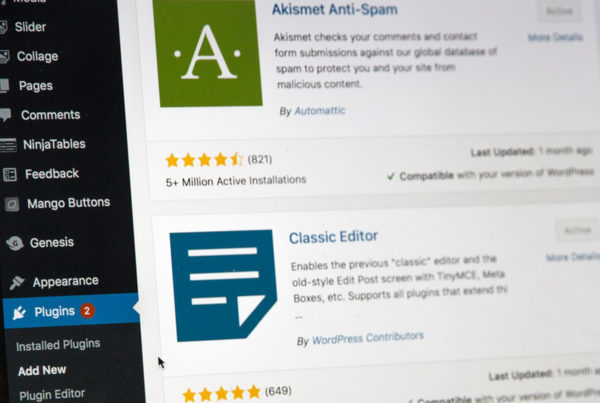Your website, for all intents and purposes, is an interview. It tells interested parties who you are, what you do, and why you’re good at it. It also tells them who you aren’t, what you don’t do, and why you’re not a good fit. While you certainly don’t need to reinvent the wheel (or yourself) when it comes to your digital presence, there are some small things you can do to make the most of your website—which does matter.
- Find Your Niche—Then Own It
Despite wanting to offer an abundance of services, being “everything to everyone” has more negatives than positives. Once you identify your core competencies, make sure that everything on your site supports that positioning. Showing your prospective clients how you embody the services shows transparency and an understanding of what value you bring to the table.
- Don’t Be a Copycat
While imitation is the sincerest form of flattery, blending in online won’t do the trick. Establish your voice early and often, and ensure that everything feels cohesive. Picking and choosing your favorite elements from competing sites will only come back to haunt you—especially when it’s clear to website users that there isn’t any continuity.
- Install Analytics
The next most important part of the web process—after it’s designed and developed—is installing analytics tracking. We typically leverage Google Analytics, as well as the Facebook Pixel, to ensure optimal tracking information. We also leverage other Google tools like Search Console and DataStudio to monitor and report performance. If you don’t know who’s using your website, how can you improve it?
- Develop Custom Assets
Depending on the size and scope of your company or organization, assets may or may not be readily available, but they are important to developing a relatable and approachable digital presence. Showcasing actual photos of your offices (instead of stock photos of offices found online) helps you connect with your prospective consumers. Being able to paint a picture of you, your team, your offices, and community involvement helps build rapport with little-to-no conversation needed.
- Never Stop Updating
Launching a website is difficult. Keeping up with it can be more difficult. Make sure you have a plan in place to have content created, and portions of the website updated. Per Google, “Search engine optimization (SEO) is often about making small modifications to parts of your website. When viewed individually, these changes might seem like incremental improvements, but when combined with other optimizations, they could have a noticeable impact on your site’s user experience and performance in organic search results.” By having a content strategy in place, even before your new website launches, you’ll be able to easily validate the investment (both in time and resources) made into having such a presence.





